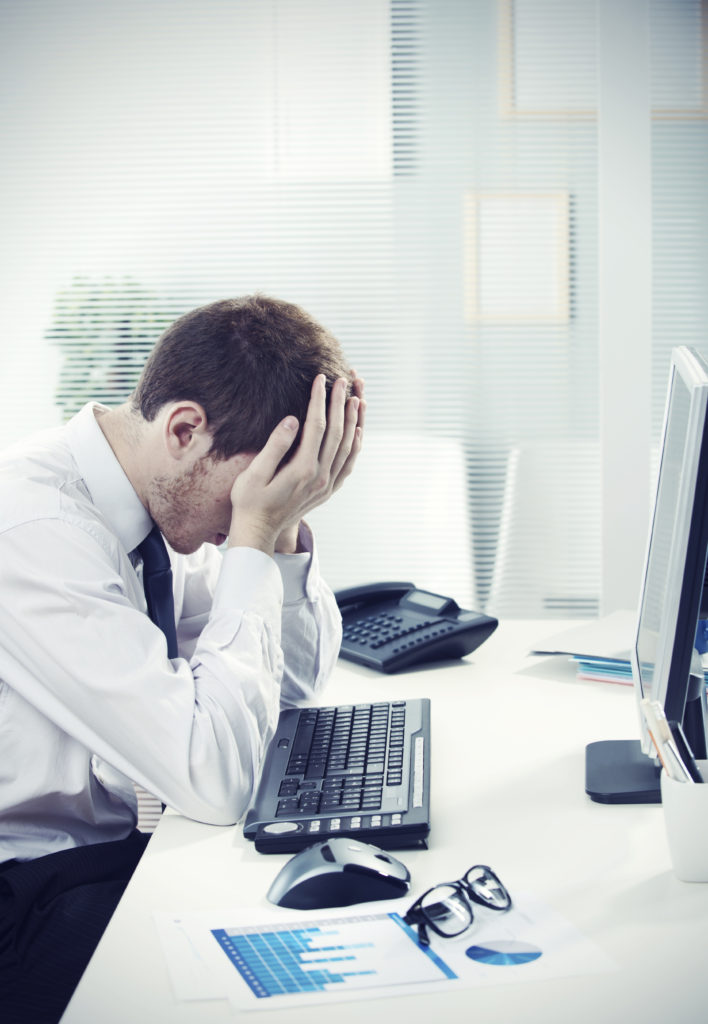When I ask people how they are doing, many times I’m hearing, “I’m overwhelmed.“ I’m beginning to think that this is more and more becoming the new norm, which is not a good sign for emotional, relational, mental or spiritual health over the long haul.

Part of this sense of being overwhelmed is due to email overload.
In an edition of the Los Angeles Times, there was an article titled, “How to manage a bulging email box,” written by Deborah Netburn. In that article there were several statements that caught my attention:
“Recent studies found that the average employee spends a third of her working day dealing with email. On average, people receive 110 emails a day and double that in the office.”
“The average inbox has only 42% that are important and 58% that are not important.” Dmitri Leonov of SaneBox.
A third of the day! Wow! 58% of what I receive is not really important! Wow!
I had a conversation with a coworker a few years ago where he told me that he had 150 emails in his inbox that he hadn’t yet looked at and had no idea what was in them. That’s downright scary!
Some will be quick to say that most of it is spam or junk. Some emails I get go into a junk folder that is somewhere else on my computer and I can delete the entire folder at the end of a day without looking in it. Still I get lots of legitimate emails a day that I need to do something with.
If you are dying a slow death to effectiveness and productivity due to this digital deluge, there is hope.
Here are a few ideas on how to begin breathing again.
1. Create email file folders to move incoming emails to, or get a software program that will do it for you. Respond today, Respond tomorrow, Respond next week, Future reading, etc. If you have a project or a person for which you will receive lots of emails, create a separate folder for that person or project.
2. When you are working on something important, turn off your email reminder so you don’t see a notice on your screen that an email just arrived.
Interruptions to your focus are costly.
3. Empty your inbox at the end of a day, putting all incoming emails in file folders you created so you can see the new ones the next day and not have to sift through dozens (maybe hundreds) of old ones to find those you want.
4. Try to respond to emails at the beginning and end of the work day before you head home, filing the rest in one of your file folders; don’t respond to them as they come in (unless critical), as that will seriously impact your focus and momentum throughout the day.
5. Never respond to email, tweets, or voice mails when you are with someone. It is flat out rude and inconsiderate. It has become an addiction to check every time something arrives. It might take some time to break this habit.
6. Unsubscribe to those emails you don’t want to receive anymore. There is usually a place at the bottom to do this.
May you live a long and fruitful life and not “die” an untimely “death” due to email overload!
Some of you reading this probably have some tips to offer as well. Please do so in the comment section below.

I think you were the one to teach me the acronym TRAF for dealing with email:
Trash – if nothing actionable is required, immediately delete it
Refer – pass it on to the right person
Action – if my action is required, reply now if I can handle it within 2-3 minutes. Otherwise move it to an “Action Required” folder and immediately schedule time in the calendar to address it
File – save to a folder if I may need to refer to the info I may need to refer to the info in the email later